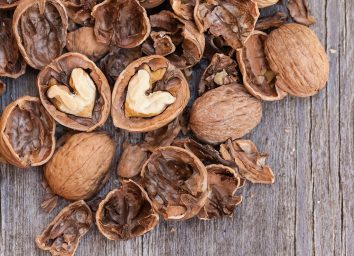Eating Habits That Cause Lasting Damage to Your Heart, According to Experts

Heart disease is the leading cause of death in the United States, contributing to approximately a quarter of all stateside deaths each year. While there are many habits that can damage your heart, from smoking to having a sedentary lifestyle, your dietary habits can play a huge role when it comes to your risk, as well. If you want to live a longer, healthier life, read on to discover which eating habits are most likely to lead to heart disease, according to experts. And if you want to change your diet for the better, start with The 7 Healthiest Foods to Eat Right Now.
Eating too many high-sugar foods.

If you want to slash your risk of cardiovascular disease, it’s time to cut out some of the sources of sugar in your diet, from desserts to smoothies to sauces with hidden sugars.
“The number one dietary habit that is detrimental to heart health is sugar,” says cardiologist Stephen T. Sinatra, MD, FACC, CNS, founder of the Heart MD Institute, who notes that the average American consumes upwards of 150 pounds of sugar each year. “Excess sugar causes excess insulin release, which causes irritation and plaque development in blood vessels.”
Consuming too much salt.

Want to take the first step toward a healthier heart and longer life? Start by putting that salt shaker down.
“Consuming too much salt causes high blood pressure, which ties to heart disease,” says Suzanne Steinbaum, MD, a cardiologist at New York’s Mount Sinai Hospital and a spokesperson for the American Heart Association’s Go Red for Women initiative.
So, just how egregious is the average person’s salt intake? According to Steinbaum, “About half of U.S. adults face an increased risk of high blood pressure due to excess sodium.”
Drinking regular soda.

It’s not just your eating habits that can contribute to your heart disease risk—your soda habit could be putting your heart in harm’s way, too.
“Sugary drink consumption is directly related to the development of diabetes and eventually cardiovascular disease,” says Steinbaum.
According to a 2020 study published in the Journal of the American Heart Association, consuming one or more sugar-sweetened drinks a day was significantly linked to cardiovascular disease, stroke, and the need for medical procedures like coronary bypass. Need some incentive to ditch those sodas for good? Check out the 108 Most Popular Sodas Ranked By How Toxic They Are.
Drinking diet soda.

However, it’s not just regular soda that could be doing serious damage to your heart.
“Although diet sodas are fat-free and do not contain any calories, they play a huge role in developing heart diseases including obesity and diabetes,” says Amber O’Brien, MD, of the Mango Clinic.
According to a 2019 study published in Circulation, consumption of artificially sweetened drinks was linked to cardiovascular disease-related death among those who consumed the beverages frequently. And if you want to get healthier now, start with these 20 Foods That Can Help Lower Your Risk of Heart Disease.
Eating too much saturated fat.

Whether you’re getting it from animal protein, butter, cheese, or processed foods, consuming too much saturated fat is one of the common eating habits that can cause your heart disease risk to skyrocket.
“Heart disease and obesity are the main diseases associated with a diet high in red meat,” explains Trista Best, a registered dietitian at Balance One Supplements.
“This is because of the meat’s high saturated fat content, which leads to an increase in cholesterol and artery blockages.” And if you’re feeling worse for wear, check out The Biggest Danger Sign You Should See a Cardiologist, Say Cardiologists.
Not eating enough fiber.

Dietary fiber isn’t just good for your digestion—it can play a major role in your heart health, too.
“Dietary fiber is known to bind with cholesterol and help with cholesterol reduction, as well as play a role in regulating blood sugar levels, which play a role in managing healthy triglyceride levels—both essential components of looking after your heart health,” explains Registered Dietician Kara Landau, founder at Uplift Food.
According to a 2017 meta-analysis published in the Journal of Chiropractic Medicine, individuals with the highest amounts of dietary fiber had significantly lower risk of dying from cardiovascular disease than those who had limited fiber consumption.
Not eating enough fruits and vegetables.

Your mom was right: eating your fruits and vegetables really can make you stronger and healthier.
“Eating too few fruits and veggies each day has been associated with cardiovascular risk,” says Registered Dietician Rachel Fine, owner of To the Pointe Nutrition.
According to a review of research published in Cardiac Failure Review, “a plant-based diet rich in fruit, vegetables, legumes and whole grains is likely beneficial” to heart health. And while you’re cleaning up your eating habits, ditch The Common Foods That Raise Your Heart Attack Risk.








